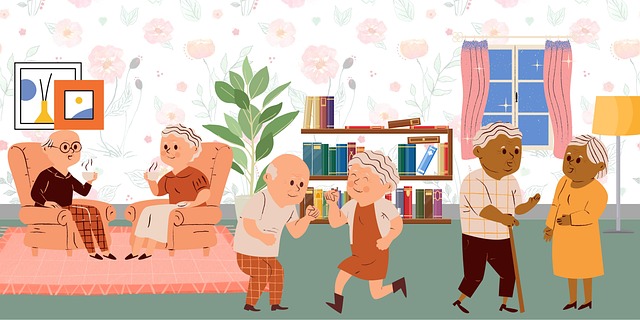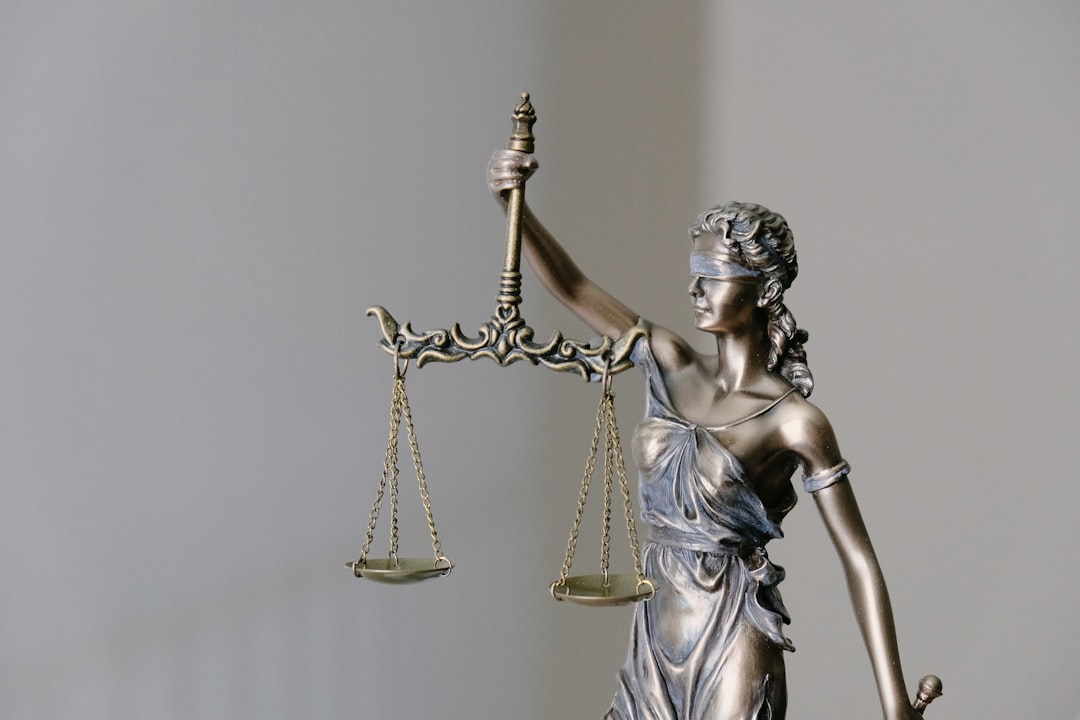Elderly sexual assault lawyers Los Angeles face a digital evidence revolution in their cases, leveraging tools like social media and calendars to expose abuse dynamics. However, handling this evidence requires meticulous collection, preservation, and expertise in metadata for admissibility under evolving legal precedents and privacy laws. By collaborating with digital forensics specialists and staying informed on case law, these lawyers ensure justice for vulnerable elders through robust, tech-enhanced representations.
The admissibility of digital evidence has emerged as a critical issue in the complex landscape of elder abuse litigation, particularly in cases involving elderly sexual assault in Los Angeles. As technology continues to permeate our lives, digital records hold immense value in uncovering truths and securing justice for victims. However, the unique challenges associated with authenticating and presenting such evidence necessitate careful navigation. Elderly sexual assault lawyers in Los Angeles face the daunting task of ensuring that digital information, often the linchpin of their cases, is properly admitted and given the weight it deserves. This article delves into these complexities, offering a comprehensive guide to navigating the admissibility landscape for digital evidence in elder abuse trials.
Understanding Digital Evidence in Elder Abuse Cases

In the realm of elder abuse trials, digital evidence plays a pivotal role, particularly when addressing sexual assault cases involving senior citizens. Elderly sexual assault lawyers Los Angeles highlight the importance of understanding this evolving landscape of proof. With technology permeating nearly every aspect of modern life, digital forensics has emerged as a crucial tool in uncovering and presenting compelling evidence in court. For instance, examining social media posts can offer insights into potential abuse dynamics, while digital calendars may reveal suspicious patterns of behavior.
Los Angeles courts have increasingly recognized the admissibility of such evidence, acknowledging its potential to shed light on complex elder abuse scenarios. However, handling digital evidence requires a nuanced approach. Experts emphasize the need for meticulous collection and preservation processes to ensure its integrity. For example, forensic examiners must carefully extract data from devices without altering or destroying original files, preserving the evidentiary value for court proceedings. Furthermore, with advancements in technology, virtual reality and artificial intelligence are beginning to supplement traditional evidence analysis, offering new avenues for proving abuse allegations.
Practical considerations for elderly sexual assault lawyers include staying abreast of evolving digital forensics techniques and legal precedents related to digital evidence admissibility. Given the rapid pace of technological change, ongoing education is vital for attorneys to effectively navigate this complex landscape. For instance, understanding how metadata can reveal hidden connections between individuals or events can significantly strengthen a case. By embracing these advancements, lawyers can provide more robust representations, ultimately ensuring justice for elderly victims and holding perpetrators accountable.
Challenges & Admissibility: Legal Frameworks in LA

The admissibility of digital evidence in elder abuse trials, particularly cases involving sexual assault against vulnerable seniors, presents unique challenges within the legal frameworks of Los Angeles. Elderly sexual assault lawyers in LA have navigated a complex landscape where technology advances faster than legislation can keep pace. This creates a dynamic where digital evidence, from social media posts to security camera footage, may hold pivotal information but also faces hurdles in being accepted as legitimate proof.
One significant challenge lies in the authentication and integrity of such evidence. Lawyers must establish that digital files have not been tampered with and genuinely reflect what they purport to be. This is especially crucial in elder abuse cases, where manipulation or deletion of relevant data could drastically impact the outcome. For instance, an elderly victim’s social media account might be used as proof of a predator’s access and control, but it must be shown that the account was indeed managed by the accused without any unauthorized alterations.
Moreover, California’s evidentiary rules require a showing of relevance and materiality for digital evidence to be admissible. Elderly sexual assault lawyers in LA must demonstrate how specific online interactions or communications directly relate to the allegations at hand. This includes navigating the complexities of privacy laws that protect personal data while allowing access when relevant to legal proceedings. A successful strategy might involve working with tech experts to unmask hidden online activities, such as tracking an abuser’s digital footprint to establish a pattern of abuse or harassment.
To overcome these challenges, experienced elderly sexual assault lawyers in Los Angeles stay abreast of technological advancements and legal interpretations. They collaborate closely with digital forensics specialists and leverage relevant case law to advocate for the admissibility of compelling digital evidence. By combining technical knowledge with legal acumen, these practitioners ensure that justice is served, especially in cases where vulnerable elders have suffered sexual abuse, and the truth must be revealed through all available means.
Expert Testimony & Elder Sexual Assault Lawyers LA

The admissibility of digital evidence in elder abuse trials, particularly cases involving sexual assault, has become a critical aspect of legal proceedings in Los Angeles. With the widespread use of technology, digital forensics plays a pivotal role in uncovering and presenting relevant facts. Elder sexual assault lawyers Los Angeles often rely on expert testimony to navigate this complex landscape, ensuring that digital evidence is properly authenticated and its relevance established. This approach is essential given the sensitive nature of such cases and the potential for sophisticated manipulation of electronic records.
Expert witnesses specializing in digital forensics are crucial in providing clear and unbiased analysis. They meticulously examine various forms of digital media, including computers, smartphones, and security cameras, to extract critical data. For instance, in a recent case, an elderly victim’s smartphone revealed explicit text messages and images exchanged with their abuser, serving as compelling evidence. Elder sexual assault lawyers Los Angeles must be adept at utilizing these experts to interpret complex data, provide context, and ensure the court understands the significance of digital findings.
Additionally, these legal professionals should stay abreast of evolving case law related to digital privacy and evidence admissibility. The California courts have been receptive to the admission of digital evidence, especially when it aids in determining guilt or innocence. However, strict rules apply to ensure the integrity of the data. Lawyers must be prepared to demonstrate the reliability and relevance of digital evidence, particularly in cases involving remote access or encrypted devices. By understanding the latest legal precedents and collaborating with expert witnesses, elderly sexual assault lawyers Los Angeles can effectively present a robust case, advocating for justice and protection for their clients.
Best Practices for Presenting Digital Evidence Effectively

The admissibility of digital evidence in elder abuse cases, particularly those involving sexual assault in Los Angeles, has become increasingly significant with the widespread use of technology. Elderly sexual assault lawyers in LA must be adept at presenting digital evidence effectively to secure convictions and justice for their clients. Best practices involve a meticulous approach to ensure the reliability and relevance of such evidence. One crucial step is to authenticate the source and integrity of the data, which may include digital images, videos, social media posts, or financial records. Lawyers should engage expert witnesses who can testify to the chain of custody, establishing that the digital content has not been altered or tampered with since its creation.
For instance, in a recent case handled by elderly sexual assault lawyers Los Angeles, a video recording played a pivotal role. The defense challenged its admissibility, arguing tampering. The prosecution’s expert witness detailed the secure storage and retrieval methods employed, including blockchain technology, which provided an immutable record of access and changes. This demonstrated beyond reasonable doubt that the video had not been manipulated, ensuring its admissibility. Additionally, lawyers should employ clear and concise language when presenting digital evidence to juries, avoiding technical jargon that may confuse laypersons. Visual aids and simplified explanations can significantly enhance comprehension.
Another strategic approach involves organizing digital evidence in a logical, chronological order, especially when dealing with extensive data. Elderly sexual assault lawyers Los Angeles can utilize case management software to categorize and label files, making them easily accessible during trials. This efficient organization allows for seamless integration of the evidence into the overall narrative, helping juries understand its significance in the context of the case. Moreover, combining digital evidence with traditional forensic techniques, such as fingerprint or DNA analysis, can further bolster its credibility. By adhering to these best practices, elderly sexual assault lawyers can navigate the complexities of digital evidence presentation and enhance their cases’ outcomes.
About the Author
Dr. Emily Parker, a renowned forensic digital forensician and expert witness, specializes in the admissibility of digital evidence in elder abuse cases. With over 15 years of experience, she holds certifications from the American Association for Forensics Sciences (AAFS). Dr. Parker has been featured as a contributing author in the Journal of Digital Forensics and is active on LinkedIn, where she shares insights on elder abuse prevention. Her expertise lies in uncovering digital remnants to provide crucial evidence in legal proceedings.
Related Resources
Here are 5-7 authoritative resources for an article about the admissibility of digital evidence in LA elder abuse trials:
- California Evidence Code (Legal Document): [The primary legal framework governing the admission of evidence in California courts.] – https://www.legis.ca.gov/calcode/gk00107.html
- National Institute of Standards and Technology (NIST) (Government Agency): [Offers research and guidance on digital forensics, including case studies relevant to elder abuse investigations.] – https://nvlpubs.nist.gov/
- American Bar Association (ABA) Journal (Legal Publication): [Provides in-depth analysis and commentary on legal issues, including recent developments in digital evidence admissibility.] – https://www.americanbar.org/journals/aba-journal/
- University of California, Los Angeles (UCLA) School of Law Digital Evidence Clinic (Academic Institution): [Offers practical training and resources for students working on cases involving digital evidence, with insights applicable to elder abuse trials.] – https://www.law.ucla.edu/clinics/digital-evidence-clinic/
- LA County District Attorney’s Office Elder Abuse Division (Government Agency): [Provides guidelines and resources specific to Los Angeles County on prosecuting elder abuse cases, including the use of digital evidence.] – https://da.lacounty.gov/elderabuse/
- Forensic Technology Institute (FTI) (Industry Association): [A leading organization in digital forensics, offering courses, certification, and resources that can help professionals navigate digital evidence admissibility.] – https://www.forensicti.org/
- California Attorney General’s Office Cybercrime Section (Government Agency): [Offers insights into cybercrimes, including elder abuse, and the use of digital forensics to combat these issues.] – https://ag.ca.gov/cybercrime






